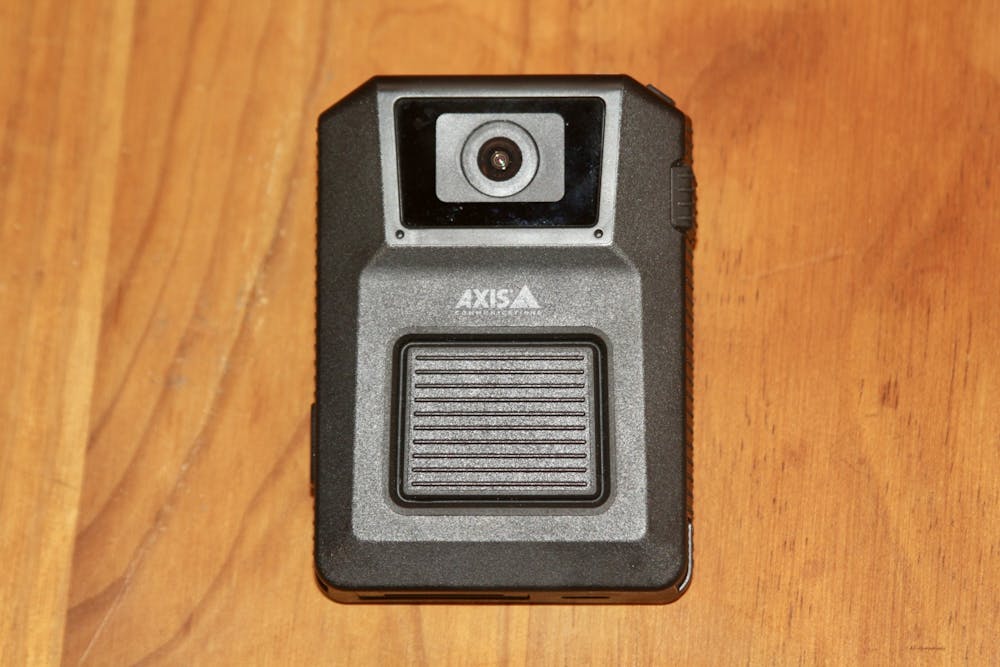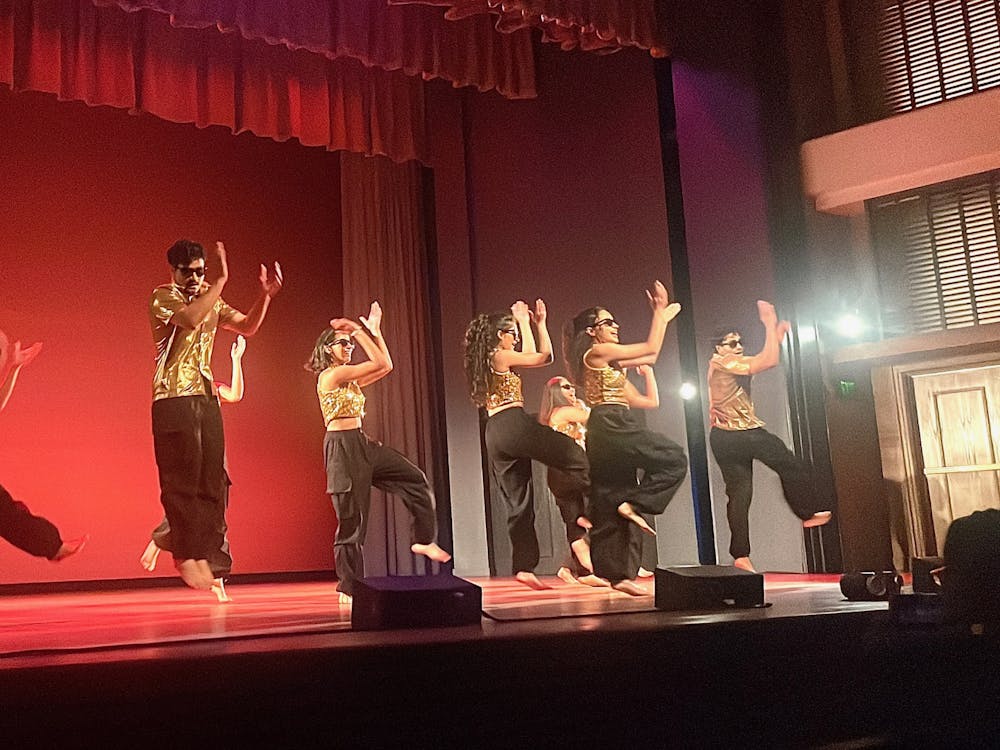University of Richmond’s Police Department officers will use body-worn cameras in an effort to de-escalate conflict and bias during interactions within the campus community.
Chief of Police Dave McCoy first addressed the concept of body-worn cameras after incidents of two verbal exchanges between students, a security officer and a police officer, according to an email sent to the UR community on Feb. 20, 2021.
"I am disturbed by these incidents because I believe they can be prevented," McCoy said in the email. "This does not represent [URPD's] best or our norm, and I am aware that these incidents have a greater impact on persons of color in our community, particularly students."
Beginning early September, uniformed officers and immediate supervisors on duty will have body-worn cameras with their uniforms and activate the camera on call for services or any time there is contact with someone for law enforcement purposes, according to the URPD’s draft policy.
McCoy explored the idea of having body-worn cameras after seeing other municipalities and higher education units use them.
"The benefits outweighed issues that might resolve around it," McCoy said. "The body-worn cameras are a tool that will benefit both the complainant and the officers."
URPD's new policy is a "learning curve" for the department, McCoy said.
“It’s an opportunity for an officer to say, ‘Hey, I had this really interesting altercation with a student,'” McCoy said. “It’s on video, we review it, and we might be able to learn something from it.”
Complainants, student organizations, Title IX, or other parties can only view the footage if the request is reviewed and approved by the chief, according to the draft policy.
“There’s an opportunity for a complainant to come in and view the video prior to going with a formal complaint, so we’re on the same page going forward on an early aspect of it," McCoy said.
The purpose of the cameras is to have a neutral view of what has happened without any interference from what someone perceives, URPD Maj. Eric Beatty said.
There is also concern over the new policy. Given the national movement toward police reform, body-worn cameras will hold officers accountable when interacting with the UR community on camera, sophomore Clara Kugelman said.
Enjoy what you're reading?
Signup for our newsletter
“If we are seeing injustice on campus, with the alterations between URPD students, we can see the scene for what it was, not just who’s there,” junior Kiran Saini said.
Since officers will document interactions with students, a student's identity will not be anonymous and there is a fear such footage can leak, Saini said.
The camera features visual and audio records of the events. URPD stores the footage on the system’s server and is not permitted to interfere or edit the footage unless authorized by the chief or a designee, according to the draft policy.
While officers will have confidential footage of a student in a scene, URPD can, with approval from the chief, redact certain private information including social security numbers, or other information that is generally not allowed for the public to know, Beatty said.
For sensitive situations, officers must document during the first moments of arrival and include spontaneous voluntary responses helpful for a victim’s testimony, if needed. Only after seeing all subjects are safe, officers can, with their own judgment or at the request of the victim or health care professional, turn off their cameras, according to the draft policy.
“I like to think of [URPD] as a partner of CAPS, Student Development and everybody providing support to students, we all essentially do the same thing,” McCoy said.
Questions regarding URPD’s new body-worn camera policy can be directed at police@richmond.edu or (804) 289-8715.
Contact news writer Ananya Chetia at ananya.chetia@richmond.edu.
Support independent student media
You can make a tax-deductible donation by clicking the button below, which takes you to our secure PayPal account. The page is set up to receive contributions in whatever amount you designate. We look forward to using the money we raise to further our mission of providing honest and accurate information to students, faculty, staff, alumni and others in the general public.
Donate Now



